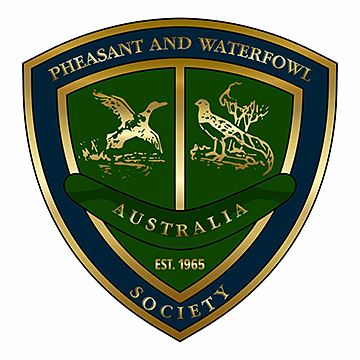The “NWIFF Breeding Recovery Program” has enjoyed remarkable success during the 2018/2019 breeding season.
The “Recovery Team” have to date successfully increased significantly the population of the endangered NWIFF breed.
Establishing satellite flocks is the next step of the project as we endeavor to secure this unique Australian breed’s future.
The NWIFF breeding recovery team is offering birds to approved breeders wishing to participate in our studbook “Breeding Recovery Program”.
The PWSA NWIFF Breeding Recovery Team stipulate the following to “Approved Breeders”.
Nutrition and care
Appropriate nutrition is an important factor in successful keeping, breeding and the long term health of NWIFF.
Chicks require sufficient protein to ensure satisfactory early growth rates. Poultry/turkey crumbles are a suitable feed initially which can progressively be substituted with a grain based scratch diet.
Greens should be offered daily, initially finely chopped for the day old chick with size increasing as the birds grow.
Fresh, clean and cool water should be available at all times.
Shell grit should be made available regularly.
Deep litter (sugar cane mulch, saw dust, wood shavings, rice husks or similar) enables “Dust Bathing” and minimizes the adverse effects of excrement build up.
Birds should be treated for both external and internal parasites as required.
Birds in the wild are exposed to seasonal variability and availability of food and are not uniformly nourished throughout the seasons. A constantly available food source will result in overweight birds resulting in deterioration of general health and breeding success. Generally breeding cycles are linked to the availability of food often including an increase in protein prior to and during the breeding season. Birds should not be overfed in the non-breeding season, with higher protein diet being introduced in early spring.
The arrival of seasonal warmer weather and particularly increased rainfall ongoing through early summer results in an increase in available protein as protein rich insects and invertebrates, breed and proliferate. NWIFF which breed seasonally will exploit these conditions to breed.
Bird’s condition should be maintained during the 6 month period from February to August with lower protein feeds with increased dietary protein provided for the breeding season which commences from August thru to January. These dates may vary dependent on climatic conditions to which they are subjected.
Closed Ring Leg Banding of NWIFF Chicks.
Banding of chicks ensures birds offered for sale by members are direct descendants of North West Island Feral Fowl. (Introduction of new/additional genetics to a NWIFF flock would result in a chicken of little value with no breed heritage)
Closed Leg Banding Data
|
Bird sex
|
Leg Dim.
Imperial
|
Leg Dim.
Metric
|
Closed Band Size
|
Tube Size ID
|
Age to band
|
|
Hen
|
0.50 inches
|
12.07 mm
|
20 x 1.6 mm
|
16.8 mm
|
8 weeks
|
|
Cockerel
|
0.67 inches
|
17.02 mm
|
22.22 x 1.42mm
|
19.4 mm
|
8 weeks
|
Banding Advice
